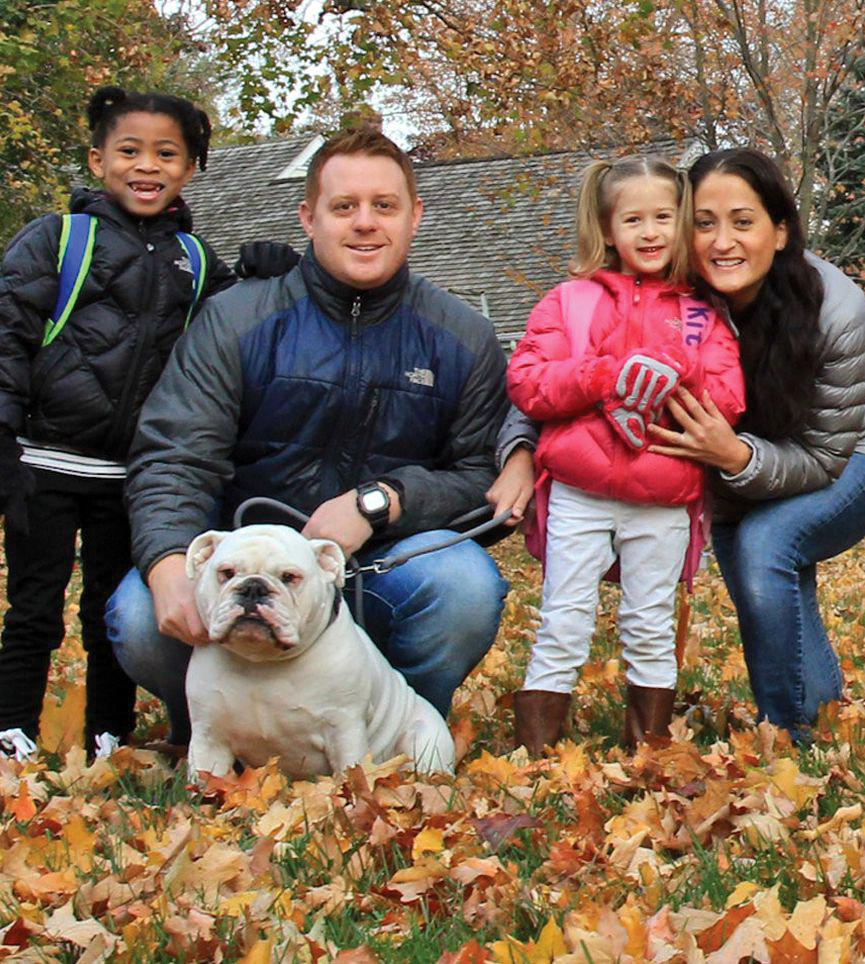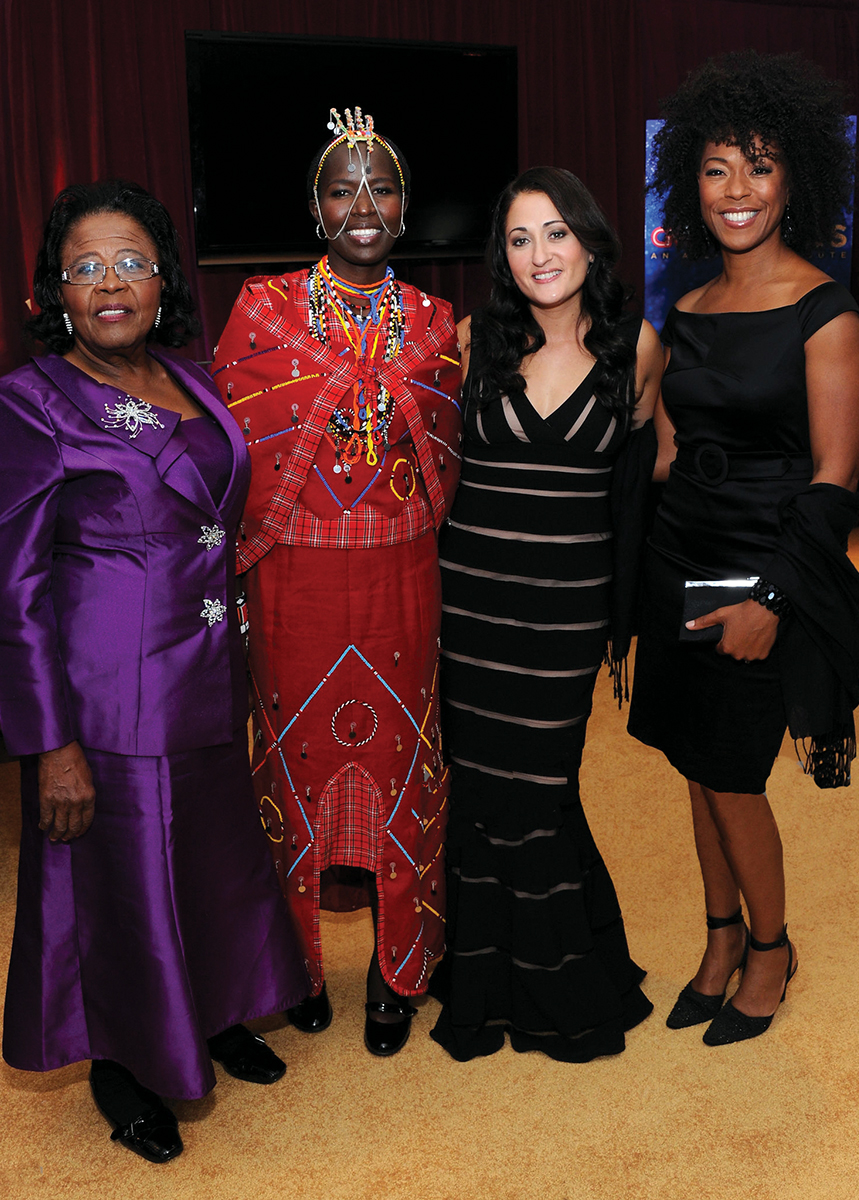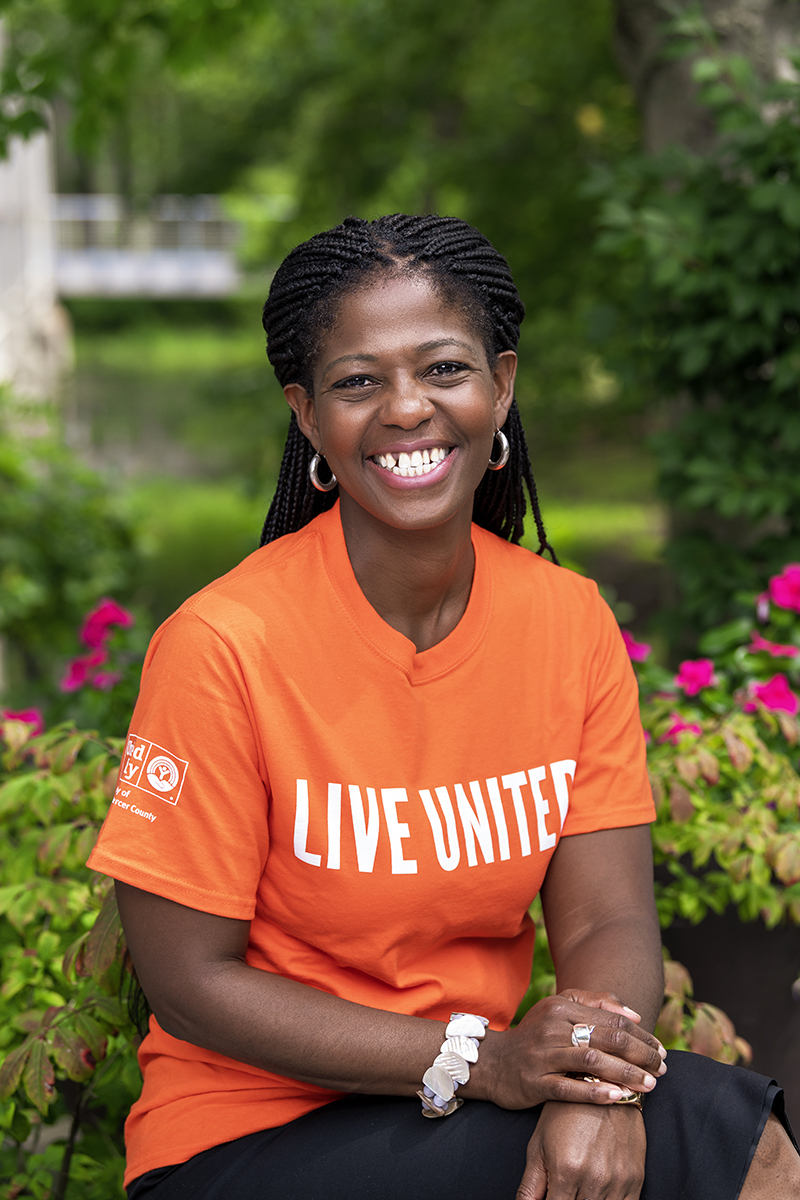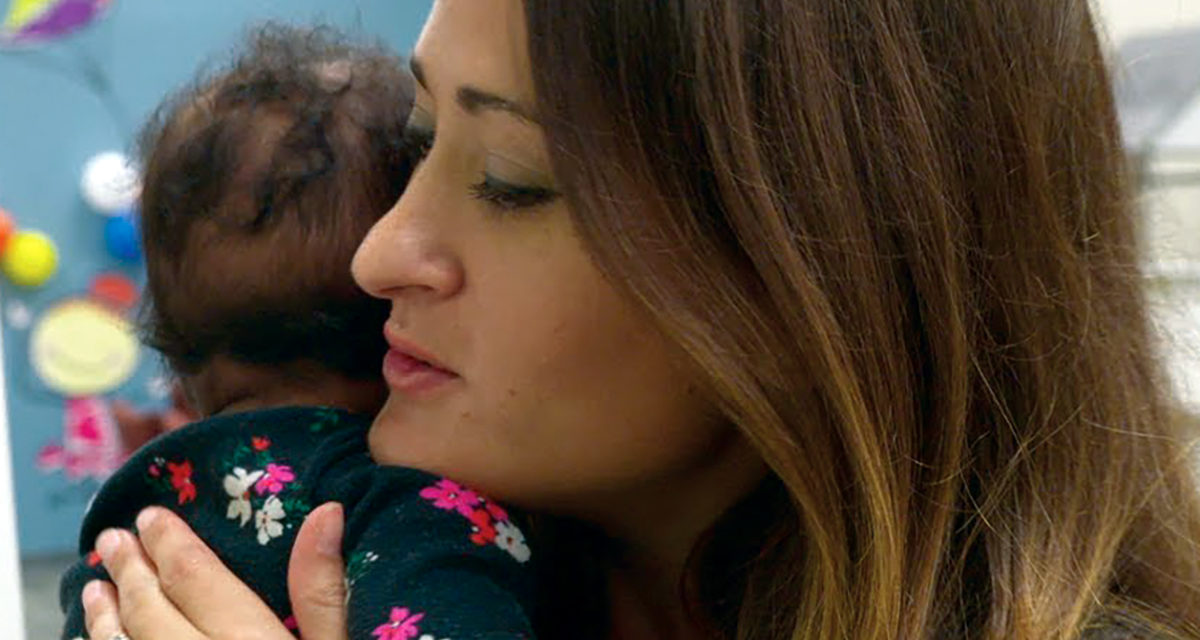Danielle Gletow left a lucrative marketing career to launch a nonprofit that has grown from grassroots and self-funded to a celeb-sponsored million-dollar baby. Now in the process of building a second charity for at-risk animals in Trenton, she reflects on her blessings and lessons learned.
When you start something because you feel driven, compelled to right a grievous wrong, it’s almost impossible to envision it growing into an empire, something that changes lives nationwide. You can hope with all your heart, but you can’t know.
When Ewing, NJ, resident Danielle Gletow founded One Simple Wish in 2008, she never expected it would lead to her “sitting on Harry Connick, Jr.’s couch, staring at his beautiful eyes.” But that’s where she found herself in 2017, explaining the mission of the nonprofit, which served more than 20,000 children last year alone.
“It takes a lot for me to be starstruck, but I’ve been a fan forever, and he’s mesmerizing and just the kindest person,” she says. “He asked me a question and, I swear to God, I don’t know what came out of my mouth. I looked at the cameraman and was like, ‘I don’t know what I just said. Can we do this again?’”
She eventually told Connick that onesimplewish.org is a website where anyone can go to grant a specific wish for a child who is in the foster care system or a young adult who has aged out of it. The need is great: More than 500,000 kids are in foster care each year. Many of those children have been victims of abuse, neglect, and trauma. And more than 22,000 young people age out of the system without stable, permanent connections. As this issue went to press, there were 540 wishes pending, from rainbow stamps and bike helmets to swing sets and laptops. Each day, more wishes flood in.
“Those statistics can be overwhelming,” she admits. “No one says, ‘Oh, can I help half a million kids?’ But like Mother Teresa said: If you can’t feed 100, just feed one. It’s the same thing with One Simple Wish. We ask children what one thing will bring them the most joy, and we give it to them. It’s that simple. It connects people to people. You’re not supporting a cause; you’re supporting a child.”
Called to Serve
It is not uncommon for a charity to “find” its founder, rather than the other way around. This was certainly true for Danielle. “I had always wanted to create something that wasn’t ordinary,” she says. But until she and her husband, Joe, began fostering children in 2006, she hadn’t found something she was passionate about. Twice Danielle and Joe had to give back children—José and Antonio—in moments that she calls some of the most devastating of her entire life. But the pain turned to elation when the couple adopted foster-daughter Mia in September of 2007 and, 1 year later, welcomed biological daughter Liliana into the family.
At the time, Danielle was working in marketing, pitching successful loyalty programs for big-name pharmaceuticals like Botox, thanks to plenty of creativity, grit, and talent—and, interestingly, no thanks to a college degree. “I’m not advocating for dropping out,” she says, “but college was not my thing. I feel like, if you’re going to put your time and money into something, you should really want it.”
What she did really want—since childhood, in fact—was to be a boss. “If we were playing, I was the teacher. I was the lead detective. I was the talk-show host,” she says. “I always wanted to be in charge.” As the new mother began to learn more about the harsh realities of the child welfare system, she saw an opportunity to unite her marketing skills and leadership aspirations to address the heartache she felt for the children she could not bring home.
She also saw an opportunity to pay it forward: Danielle is open about her own childhood struggle with depression and resultant hospitalization in her teens—and grateful for the adults who took the time to sit with her, talk with her, and even play guitar and sing with her throughout her struggle. “I went on maternity leave with Liliana, and I had the time—in between feeding and drifting off to sleep—to really give this idea my all,” she says.
She and Joe invested $10,000 of their own money into a website for One Simple Wish, and they began working to bring their idea to fruition. The idea was fairly simple on the surface—grant wishes to foster kids. But the wishes, while they have a practical application and can give kids something meaningful to keep, take on a symbolic meaning that can’t be understated. “These wishes represent more than just stuff; they represent that there is someone who actually cares,” says Danielle.
For the Dogs
For several years, One Simple Wish grew slowly but steadily, but in 2012 the nonprofit was featured on NBC’s Nightly News, and in 2013, Danielle was named a CNN Hero, which helped the nonprofit skyrocket.
By 2018, Danielle’s efforts garnered One Simple Wish more than $1.2 million in revenue from individuals, corporations, foundations, and in-kind donations—with just 10 percent of expenses going toward fundraising and administrative costs. (That’s about the same as United Way, which allocates 86 cents of every dollar to its mission.) The charity now partners with 700 agencies to gather wishes from kids in 47 states.
But then something else began tugging at her heart, and she launched a new nonprofit, spurred by a gut-wrenching Facebook tale on the Trenton Animal Shelter about an abandoned pit bull mix named Bizzy. The pup had been hit by a car and needed surgery that the shelter could not afford. This time around, Danielle knew just what to do.
She used her hard-won knowledge and political connections to fundraise and donate $5,000—then set to work launching Trenton Animals Rock (tarnj.org). Its goal: to serve injured, abused, and abandoned animals in Trenton. “They’re animals in a city that is overwhelmed with poverty, drugs, crime, homelessness,” she says. “They don’t know people with money. They certainly don’t talk. They’re really on the bottom of the barrel.” She quickly gathered a group of volunteers, then spent “months and months and months” trying to prove to the city administration that she could actually do what she was proposing. “We’ve raised close to $100,000 already,” she says. “That’s pretty crazy for a start-up dog rescue. And this is with me not really trying yet.”
This is what I was supposed to do. I was supposed to help kids in foster care.





Community Quarterback
The United Way may be best known for its NFL partnership, but the CEO of Mercer County’s chapter wants you to know that her focus is on the “home team.”
Sandra Toussaint has long been an MVP in the world of nonprofits. Even before she graduated from New York University in 2002 with a master’s in public administration, she had made the shift from corporate America to Director of Major Gifts for United Way of New York City. After two decades championing marginalized youth, women, children, and animals in an array of nonprofit organizations, including the National Audubon Society, Special Olympics, the New York Women’s Foundation, YWCA of Princeton, and the Center for Non-Profits, she circled back to United Way in 2016, this time as President and CEO of the Greater Mercer County chapter.
Here’s a closer look at her personal journey from corporate champion to nonprofit guru—and what it means for the community she lives in and loves.
What led you to nonprofit work?
I was born in New York City, but my family is from Haiti. I grew up believing you can have a bigger purpose in life. I started out in corporate—business development and marketing for insurance companies—and volunteered on the side. Then I realized I could take my passion and align it with my professional career.
What might surprise people about your job?
There are a lot of misconceptions that it’s slower in the nonprofit sector. That’s not true. The employees are committed, passionate, and result-oriented. They’re mission-driven because they want to do good. You’re still putting in long hours. The difference is that, at the end of the day, you know you’re helping someone. You’re helping your community.
Did you always expect to be in leadership?
Yes. With my background, my skill set, my interests—I was primed for leadership. I think people are not sure of me because I’m young. I’m a woman of color. People are often surprised that I’m witty and articulate. There’s not a lot of women or diversity in leadership, but it’s an exciting time because that’s starting to change.
What is one of your major goals for United Way?
There are 55,000 local families struggling to make ends meet in the Mercer County area. We want to be at the forefront of addressing that. United Way is here to help.
What are the qualities of a successful nonprofit?
A good nonprofit is one where the staff and board are engaged, they have clear goals, they are able to report back, and they have some outcomes. They also ask themselves the hard questions. How do you know what you’re doing is working? If it’s not working, what do you need to do? If it is working, how do you expand or sustain it? Is it moving the needle? Are the volunteers engaged? Is the staff supportive and talented? And, of course, you need to be financially sound.
What might surprise people about you?
I took salsa dancing in my twenties! Being in a salsa dancing competition is on my bucket list.
What is your hope for United Way in the coming year?
I want us to be more intentional and impactful. The greatest advice I ever received was to be yourself. Be authentic. If you’re funny, don’t try to change. Stay true to who you are. That’s my goal for United Way, too. To be more transparent to build trust between us and the community.
To learn more about United Way of Greater Mercer County call 609-896-1912.



